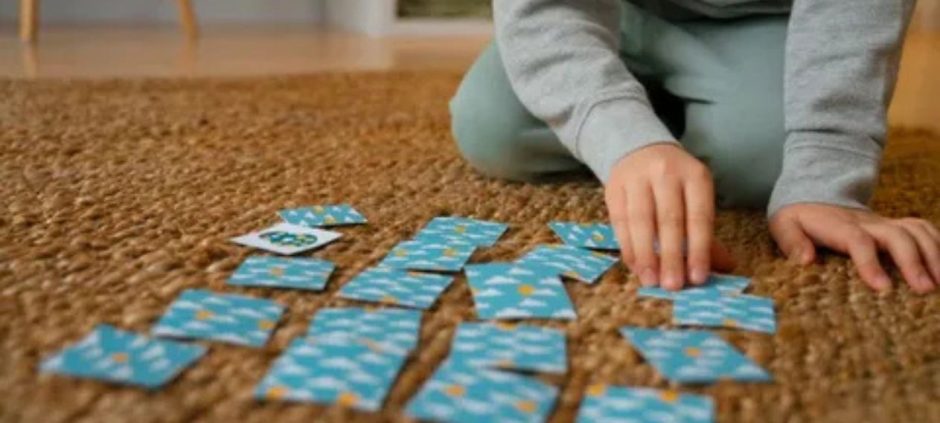Imagine your little cousin glued to the phone for hours, but instead of mindless TikToks or viral dance videos, they’re quietly solving a puzzle, their brow furrowed in focus, and even smiling when they beat their own high score. What if I told you this screen time could actually boost their memory and focus, just the right kind of brain gym for students preparing for exams?
Why Puzzle Games Are More Than Just Fun
Puzzle games aren’t just digital time-passers. They’re powerful tools for sharpening your mind. The very act of solving puzzles activates neural pathways, helping improve working memory, which is the mental space you use to juggle ideas, formulas, or key facts during study sessions.
- When students play logic-based puzzles (like Sudoku or pattern games), they force their brains to remember rules, spot patterns, and predict what comes next.
- Spatial puzzles (think jigsaw pieces or block-fit games) help build visual and spatial memory, which is super useful when you’re trying to visualize math problems or geography maps.
- Strategy games require planning several moves ahead, boosting executive functioning, including planning, shifting attention, and controlling impulses.
All of this trains your brain in a playful, low-stress way, perfect for exam preparation.
Concentration & Attention Span: How Puzzle Games Help
Pakistan’s students face a big challenge: short attention spans. With constant distractions (WhatsApp, Instagram, YouTube), it’s easy to lose focus mid-study. Puzzle games can help fix that:
Mini-session focus: Puzzles are usually divided into manageable levels, so you concentrate in short bursts, great for building stamina without burnout.
Reduced multitasking: When you’re solving something, your brain tunes out other distractions. This strengthens sustained attention.
Reward feedback loops: Many puzzle apps reward correct answers with stars, levels, or gentle “you did it!” messages. These little wins encourage you to keep going, training your brain to stay on task.
Puzzle Games for Exam Prep: Smart Study Strategy
Here are some tips for using puzzle games to complement your study habits:
- Integrate into your revision schedule: Play a 10-minute logic puzzle after a study session to give your brain a mental stretch.
- Use break time wisely: Instead of doom-scrolling through social media, use a puzzle game for your breaks. You’ll refresh your mind without losing focus.
- Pick the right difficulty: Choose games that are challenging but not too hard; that’s where the magic happens. Overly easy puzzles don’t train your brain, while super hard ones can be discouraging.
- Mix it up: Combine different types of puzzles, spatial, logic, pattern, so different mental muscles get exercised.
- Track your progress: Many puzzle apps let you track how many puzzles you’ve solved or how fast you are. Celebrate small milestones; it keeps motivation high.
The Best Puzzle Games for Kids in Pakistan: Safe, Educational & Screen-Time Friendly Options
If you’re a parent worried about too much screen time or mindless games, here are some top puzzle games (apps + offline) that are both fun and brain-boosting:
Jigsaw Puzzles (Offline): The timeless classic. Kids can work on physical puzzles during quiet family time, no screen involved!
Sudoku (e.g., Sudoku.com): Great for logic, pattern recognition, and numerical thinking.
Endless Alphabet / Endless Reader: Very kid-friendly, helps improve vocabulary, memory, and letter recognition.
Flow Free: A simple yet addictive “connect the dots” puzzle that helps with spatial reasoning.
Lightbot: Introduces basic programming logic, a fun way to teach planning and sequencing.
Brain Pop / BrainPOP Jr.: Educational puzzle games and quizzes covering science, math, and more, perfect for school-aged kids.
Tangram Puzzles: Very useful for hands-on spatial thinking, you can get real tangram sets or virtual ones.
These games are screen-time smart: short, purpose-driven, and designed to teach as well as entertain.
Real-World Inspiration
Did you know someone made the Guinness World Record by spinning a puzzle inside a bubble? It’s true! It’s a cool reminder that puzzles aren’t just for study; they can be quirky, creative, and very human.
Learning Through Play: Your Path to a Sharper Mind
Puzzle games are more than fun, they’re a study tool, a concentration trainer, and a healthy screen-time alternative all in one. For Pakistani students and parents, they’re a smart bridge between digital entertainment and real mental growth.
Whether you’re prepping for boards, juggling school, or simply trying to help your younger sibling (or child) stay focused, adding puzzle games into your routine can make a real difference.
Key Takeaways for Memory & Focus
Give puzzle games a try this week. Pick one logic or spatial puzzle, play for 10 minutes after studying, and see how your concentration shifts.











